Image: Republic of China Air Force F-16V fighter jets monitoring Chinese attack drones. (Provided by the Ministry of National Defense of the Republic of China /Dajiyuan)
[People News] A series of Chinese espionage cases have recently surfaced in Taiwan, affecting the military, the Presidential Office, and the Legislative Yuan. The Air Force officer couple, Sun Wei (孫緯) and Liu Yunya (劉芸雅), who were recruited as spies for China, received significantly increased sentences in their first trial, with 47 and 57 years respectively, totaling 104 years combined. Beyond the military, recent revelations have also pointed to espionage infiltration within Taiwan's Presidential Office and Legislative Yuan, implicating members of the ruling Democratic Progressive Party. The head of Taiwan's National Security Bureau has indicated that there are still more undisclosed cases.
According to reports from Radio Free Asia, investigations by law enforcement revealed that retired Air Force Colonel Liu Shengshu (劉聖恕) approached then Air Force Major Sun Wei and Captain Liu Yunya in 2013. Through a shell company established by a friend, they accepted funds from the Chinese side as payment for gathering military intelligence. Sun, who became addicted to underground gambling and accrued substantial debts, took photos of critical military control areas at the Songshan Command Post in 2021 and sent them to Chinese intelligence units.
Liu Yunya, employed at the National Defense University, previously served as a security supervisor at the confidentiality and security control center during the Han Kuang exercises. Exploiting her position, she smuggled sensitive exercise data out of the camp and secretly recorded audio files, falsely claiming they were necessary for teaching, creating educational materials, and presentations. She solicited classified documents, including military operation plans, from three majors surnamed Gong, Deng, and Liu, who were her juniors and colleagues, and subsequently handed them over to Liu Shengshu in exchange for compensation.
This case involves seven individuals who have been prosecuted for violating the National Security Law and the Criminal Laws of the Army, Navy, and Air Force. At the end of 2023, the Kaohsiung High Court sentenced Liu Shengshu to 20 years in prison, while the couple Sun Nan and Liu Nü received sentences of 19 and a half years and 20 and a half years, respectively. The sentences for the other four individuals ranged from three and a half years to not guilty. The couple surnamed Sun appealed to the Supreme Court, where their conviction for violating the National Security Law was upheld, and they were ordered to serve their sentences, while the charges related to the National Secrets Protection Law were revoked and sent back for retrial.
On April 10, the Kaohsiung High Court issued a first-instance ruling, finding Sun Nan and Liu Nü guilty of four offenses each, sentencing them to 47 years and 57 years, respectively, resulting in a combined sentence of 104 years for the couple.
Taiwanese military commentator Chen Guoming affirmed the heavy sentences in the espionage case during an interview with Radio Free Asia on the 11th, particularly regarding active military personnel. He pointed out that in the past, sentences for such cases were too lenient, often around four or five years, and could even allow for bail. In a normal country, at the very least, the individuals involved would have their property confiscated or face life imprisonment.
Of the Eight Individuals Involved, Six are Active Military Personnel. Commentator: Addressing loopholes is Challenging
Chen Guoming emphasized: 'The leakage of confidential information regarding the Han Kuang exercises is very damaging to Taiwan. Given Taiwan's limited size, while the subjects of each exercise may be announced, leaking the exact time and location allows the opposing side to utilize big data to analyze and summarize the Air Force's operational rules and frequencies. Aside from changing the time and location of the exercises, how can we address these loopholes? However, the number of available aircraft for each exercise is so limited, what can be changed? We also cannot replace all the pilots related to the base just because someone leaked information; that would be very troublesome.'
The Control Yuan has taken corrective action against the Ministry of National Defense and other agencies in relation to this case, highlighting it as a significant incident in recent years involving the infiltration of Beijing spies within the military. The primary suspects are a married couple, and the total number of individuals involved has reached eight, including six active-duty officers at the rank of major, marking the highest number in recent years, with those convicted facing relatively harsh sentences.
The main suspect not only jeopardized national security but also implicated two former acquaintances, both of whom are Air Force officers who have been sentenced and dismissed, including one pilot, representing a considerable loss for the Air Force. At that time, the supervisory committee noted that the various agencies within the Ministry of National Defense lacked adequate horizontal communication and that the supervisory personnel at all levels of the National Defense University did not possess a thorough understanding of military personnel and affairs. Alarmingly, they appointed the wife of a suspect with clear disciplinary issues to serve as the safety supervisor at the 'Han Kuang Exercise' confidentiality and security control center.
In recent years, several military leak cases have emerged, and this case is particularly unusual as it involves both members of a couple in the military engaging in espionage. Shu Xiaohuang, a deputy researcher at Taiwan's National Defense Security Research Institute, provided analysis in an interview with Radio Free Asia, stating: 'They may seek to understand Taiwan's overall military capabilities, including combat deployment, flight frequency, operational readiness rates, and personnel intelligence, by engaging with both active and retired military personnel. Those who have recently retired can still gather intelligence from comrades who are still serving.'
Infiltrating Social Networks and Leveraging Interpersonal Relationships to Recruit Spies
Shu Xiaohuang pointed out that some individuals might perceive their conversations as harmless complaints to former comrades, but those with ulterior motives can extract valuable intelligence from these discussions. 'Many social media platforms are used to discuss military topics, often involving conversations about their own units or branches of service after retirement. They may seek to join discussions on social media regarding the current status of their units, deployment situations, new equipment received, or combat readiness tasks, in order to gather more detailed and comprehensive information related to Taiwan's social, political, and military context.'
Shu Xiaohuang pointed out that individuals with improper lifestyles, financial issues, and unusual monetary transactions are more susceptible to being recruited, and it is often their peers who first notice counterintelligence activities.
He analyzed that the Chinese side primarily uses financial incentives and female allure to entice individuals, or organizes neighborhood groups to travel to the mainland to identify members with special backgrounds. They seek out individuals connected to the military within the business community and attempt to recruit them through Taiwanese businessmen and family ties. In the academic field, it is common to initially invite submissions and pay for them legitimately, followed by requests for specific topics and demands for more in-depth and detailed content.
The recent Beijing espionage case has caused a stir in Taiwan, affecting the Presidential Office and the National Assembly. This includes three aides from the Presidential Office, former Legislative Yuan President You Si-kun, and several assistants to Democratic Progressive Party (DPP) legislators, as well as former DPP party workers implicated in the case, underscoring the seriousness of infiltration within the ruling party.
Collapse of Government and Party Security — Taiwan's National Security Director Warns of “Unexploded Bombs”
Taiwan’s National Security Bureau Director-General Tsai Ming-yen recently responded to questions from legislators, who asked whether there are still “unexploded bombs under investigation.” Tsai replied, “Some related cases are still under investigation and evidence collection. As long as there are anomalies or illegal activities, we will actively gather evidence. In addition, we will amend the National Security Act to address its current shortcomings and prevent all forms of CCP united front tactics or infiltration in Taiwan.”
Several legislators asked whether there are warning mechanisms if legislative assistants are involved in national security issues, and whether a vetting system for legislative aides could be established. Tsai responded that the National Security Bureau has over 180 positions, some of which are subject to confidential clearance checks. If a classification and grading system for confidentiality and declassification standards can be established, potential loopholes should be reduced.
Chen Pai-li, Director of the Ministry of Justice Investigation Bureau, added that relevant laws under the Directorate-General of Personnel Administration should be amended to expand the scope of security checks.
According to a National Security Bureau report, from 2020 to the present, 159 people have been indicted in CCP espionage cases involving infiltration into Taiwanese government agencies and military units. Among them, 95 are current or former military personnel, accounting for about 60%. Common methods include retired officers recruiting active-duty ones, online networking, financial incentives, and coercion through debt.
Tsai emphasized that investigations must be conducted thoroughly and impartially across all political parties. Quick and strict punishment is necessary. The NSB and the Ministry of Justice have jointly reviewed national security-related legal provisions and are preparing amendments to deter espionage activities by the CCP.
Shu Hsiao-huang pointed out that Beijing targets various political parties, including the legislature and key sensitive government agencies. “They gather intelligence from within, regardless of political affiliation. If they can spy, they will, especially if there’s money involved. Personal relationships are often the entry point, and these are not filtered by political stance. When parties accuse each other of selling out Taiwan, it often comes down to the pot calling the kettle black.”
Strengthening National Security: Severe Penalties for Civil Servants in Sensitive Posts Should Match Those for Military Personnel
Chen Kuo-ming noted that while heavier penalties serve as a deterrent for military personnel, cases involving “civilians” connected to high-level political figures are often more difficult to handle — and potentially more damaging to national security. For example, if the president suddenly decides to visit a military base, only the presidential secretary-general and certain aides would be privy to the itinerary.
Chen argued that the recent heavy sentencing of a military officer couple should serve as a precedent. The law should be amended so that assistants and key aides working near the Presidential Office or senior party figures who leak classified information face penalties comparable to those in the military, in order to serve as a strong deterrent.

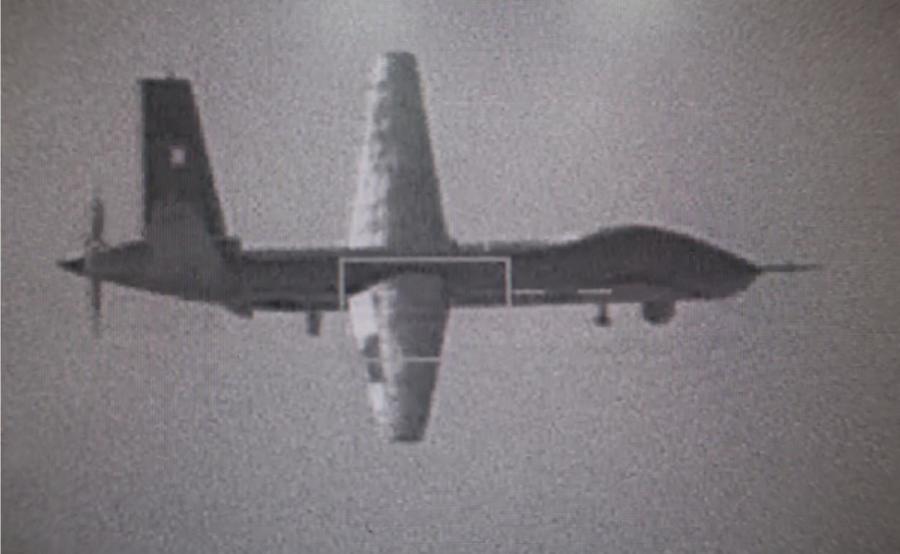

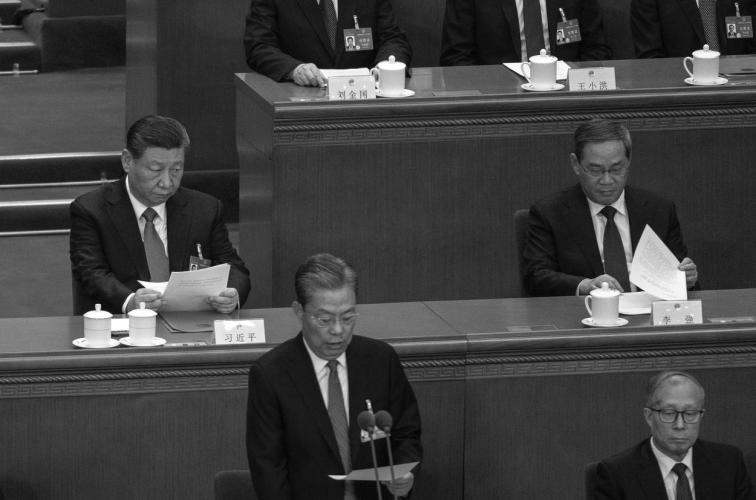

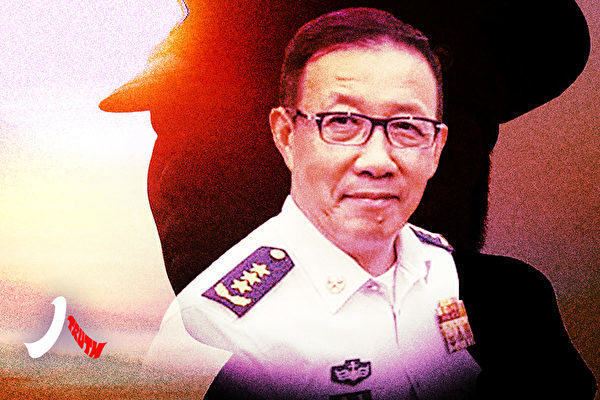
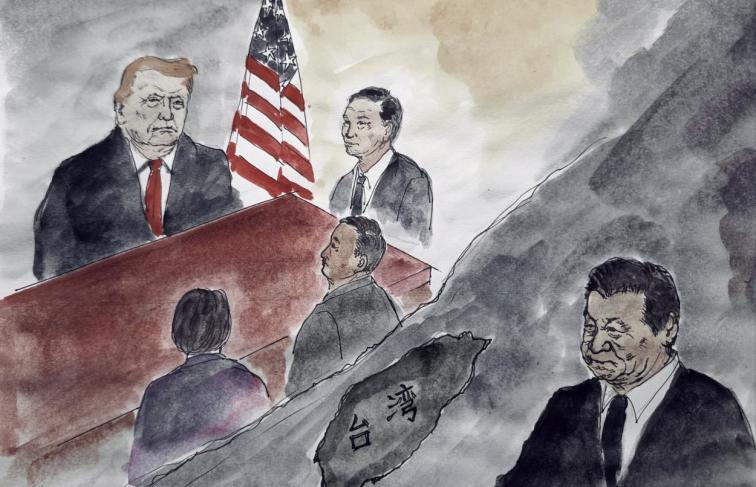
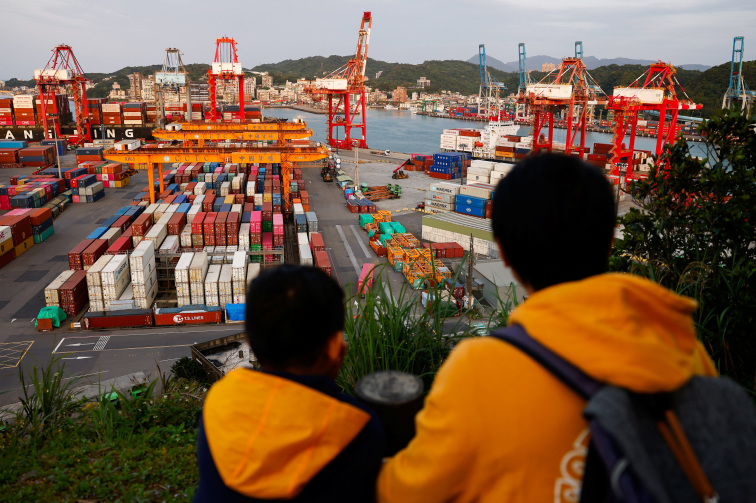
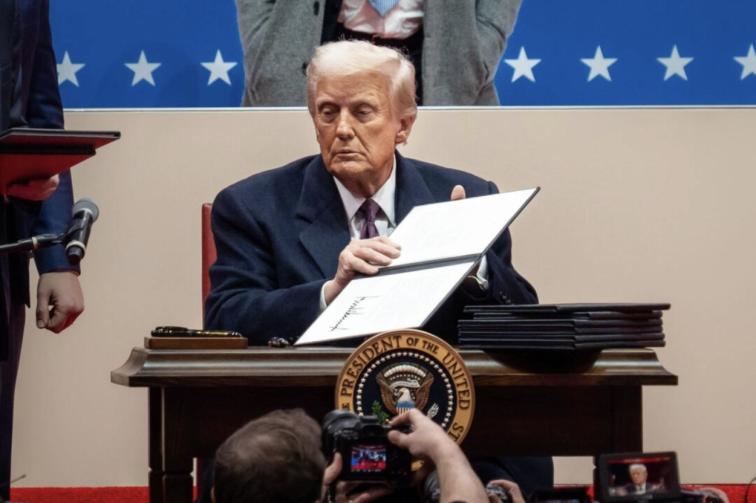


News magazine bootstrap themes!
I like this themes, fast loading and look profesional
Thank you Carlos!
You're welcome!
Please support me with give positive rating!
Yes Sure!